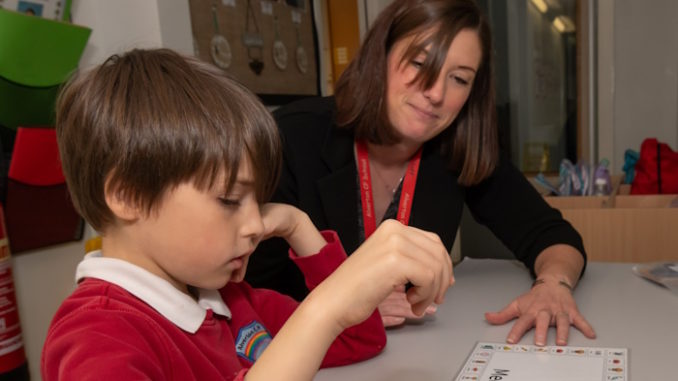
Children with specialist needs are set to receive the support they require in an inclusive environment designed to help them to “become the best they can be”.
A project equipping mainstream schools in North Yorkshire to cater for children with additional needs is happening thanks to a investment from North Yorkshire Council.
The Targeted Mainstream Provision (TMP) Programme focuses on tailored support for children without them having to travel miles to another provision.
Children accessing the TMP all have an education and healthcare plan (EHCP) and receive a tailored curriculum and, where required, a therapeutic package to support their needs while remaining amongst their peers and educated close to their homes.
Latest data reveals the number of young people identified with SEND and ECHPs in North Yorkshire has increased by more than 110 per cent since 2016. The demand continues to grow and currently the figure stands at more than 16,000 pupils.
North Yorkshire Council’s executive member for children and families, Cllr Janet Sanderson, said: “The increase in SEND provision has reached a record high and increasing costs are a concern. The problem is not unique to North Yorkshire and these figures are a reminder of the huge pressure which councils are under.
“All our children and young people are entitled to a high-quality education that is local to them. We want them to receive the very best support at the right time. We also want to reassure parents and carers and give them the confidence that their local school will meet their children’s needs so they can achieve their full potential and attend school alongside their peers.”
Up to 31 TMPs are planned to be created overall in the county, offering 248 full-time places. Each school that hosts a TMP will offer eight full-time places for six children and young people with an EHCP and two “flexible” places for children needing access for short-term assessment and support.
Each school is given funds for set up costs, along with key training, monitoring and the opportunity to work with others to share best practice. In all cases, children and young people will be offered bespoke timetables to allow access to the mainstream curriculum, as well as additional support and therapies, such as occupational therapy, speech and language therapy and educational psychology support.
There are currently 11 TMPs open across North Yorkshire with more in development.
Alverton Primary School in Northallerton was among the first educational establishments in the county to embrace the TMP model and headteacher, Lee Matravers, has high aspirations for his SEND pupils.
He said: “We have found the TMP model to be very successful at our school and being in the right setting has enabled children to make exceptional progress in all aspects of learning and life skills.
“North Yorkshire Council provided support with building works to make our classrooms suitable for children with communication and interaction needs, such as a sensory space and soundproofing. The council has provided funded training to TMP staff to ensure that they are best able to support the children.”
He added: “Our children and our community are at the heart of everything we do. We have high aspirations for all our pupils and through our unwavering commitment to the nurture and wellbeing of our pupils, we will continue to help them go from strength-to-strength.”
North Yorkshire Council gave the go-ahead last month for TMPs to be created at Dishforth Airfield Community Primary School in Thirsk and Norton Community Primary School from January 2025.
The council’s executive member for education, learning and skills, Cllr Annabel Wilkinson, said: “The additional provisions will provide essential support for children with special educational needs and disabilities, helping them to thrive in an inclusive environment and it is pleasing and encouraging to see the early success of the provision at Alverton Primary School.
“We anticipate that with more local provision, North Yorkshire’s children and young people with SEND will have further opportunities to be educated close to their home and stay with their friends where they belong, helping them to achieve better educational and social outcomes to “become the best they can be.”


Be the first to comment